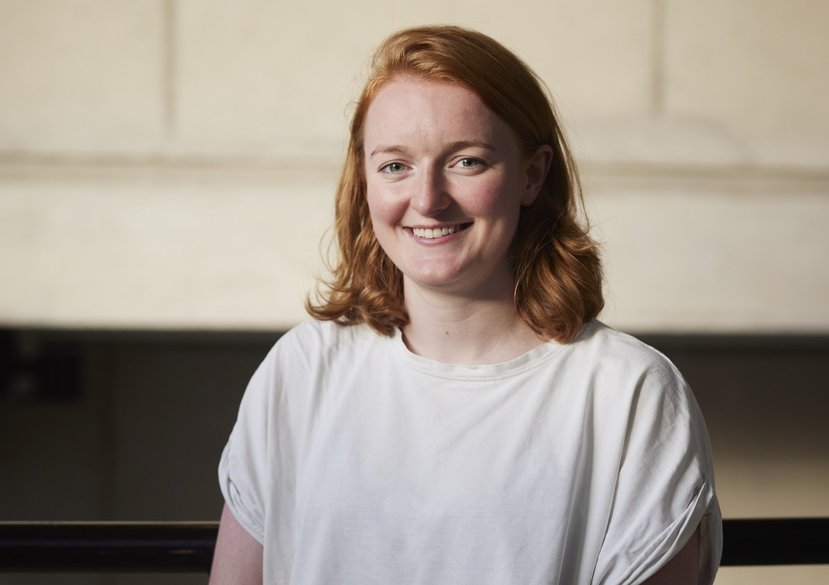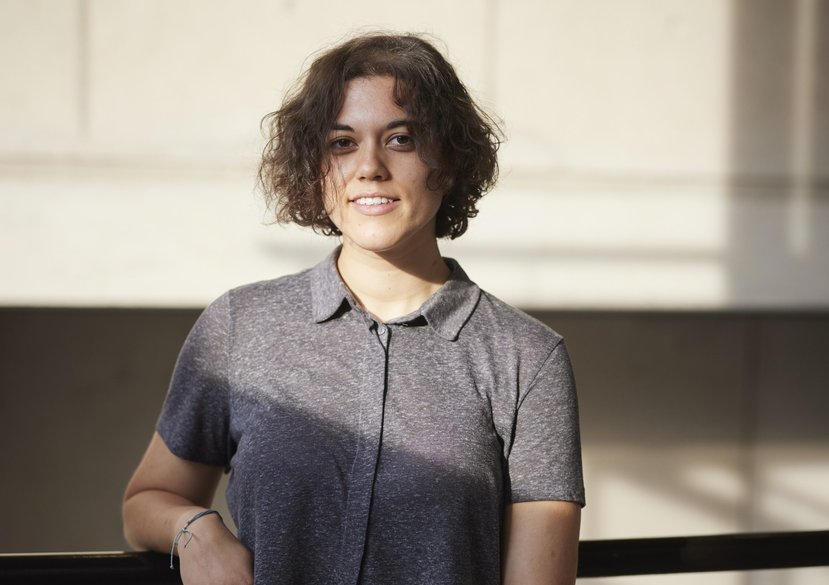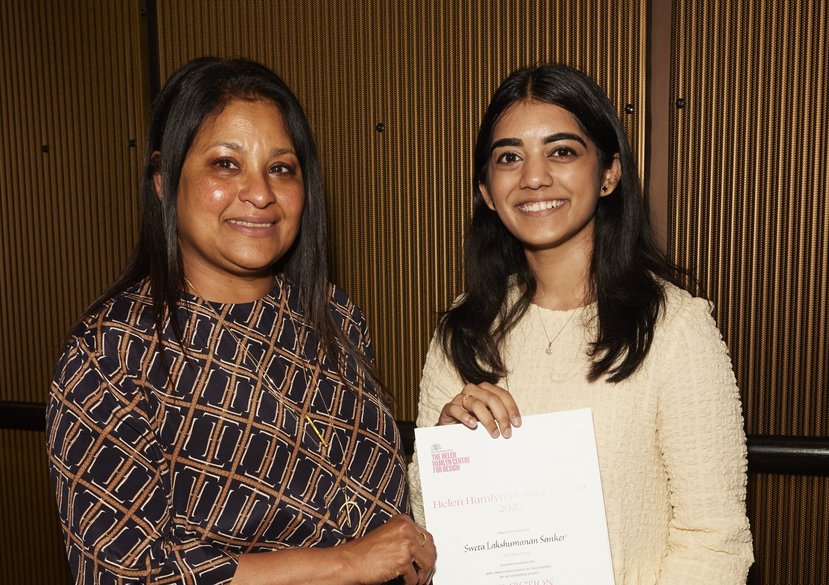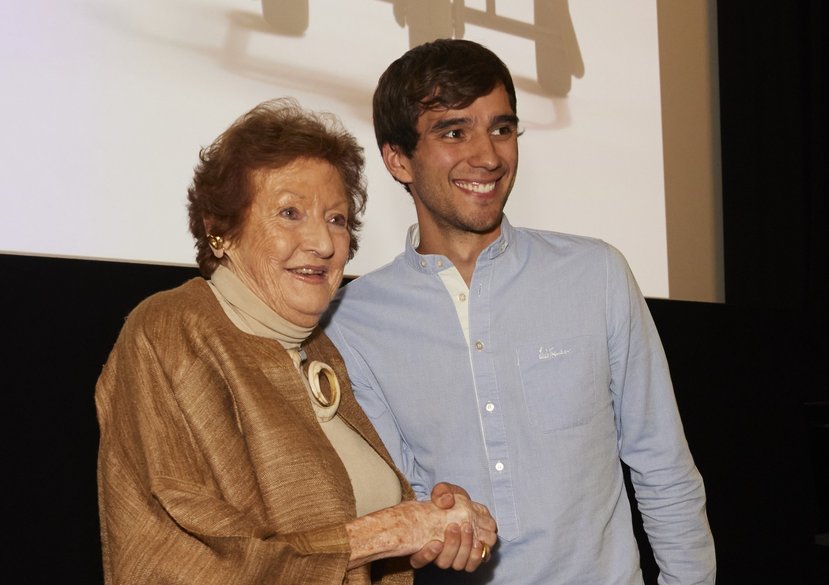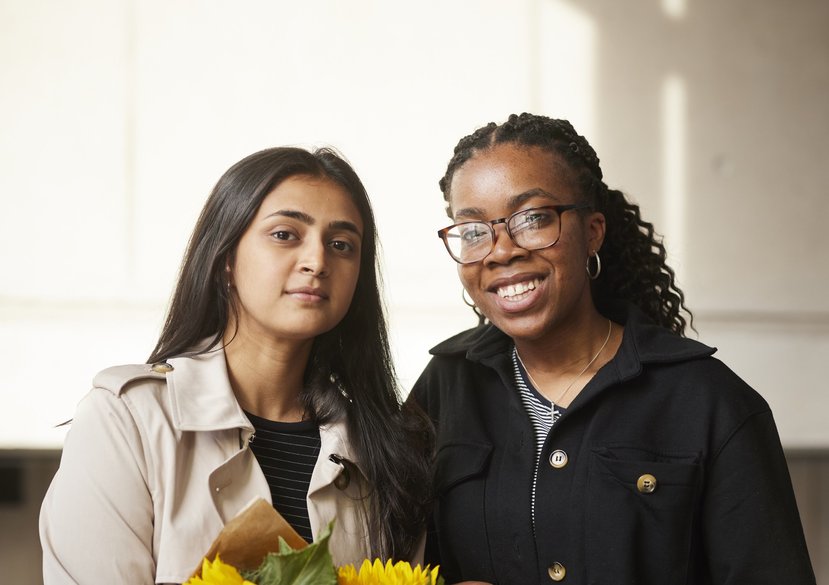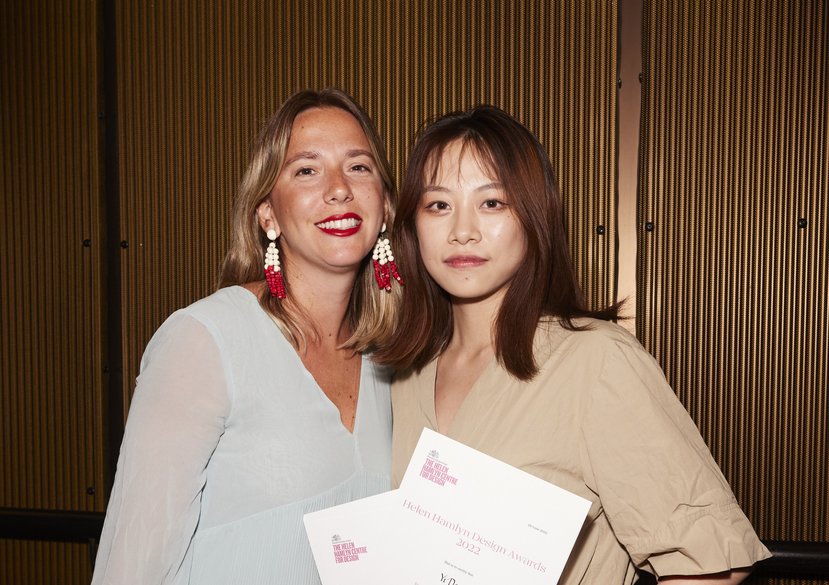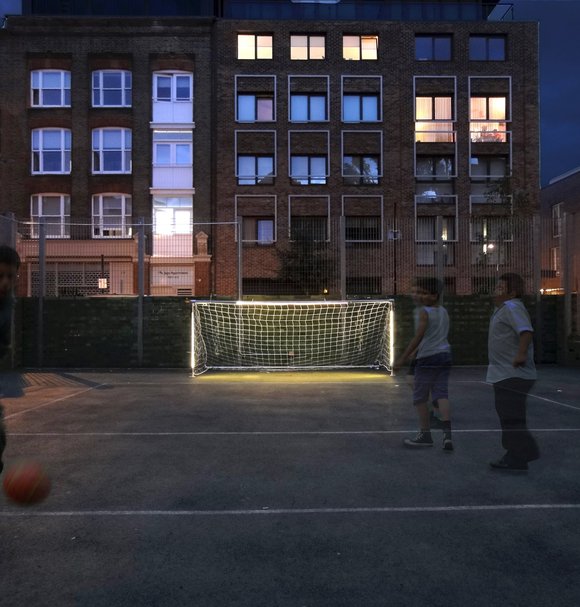Key details
Date
- 11 July 2022
Author
- RCA
Read time
- 8 minutes
The Royal College of Art (RCA) is delighted to share the winners of the 2022 Helen Hamlyn Design Awards which focused on social impact, inclusive technology, systems and design and creativity.
Key details
Date
- 11 July 2022
Author
- RCA
Read time
- 8 minutes
From measuring water quality to monitoring breast health, and examining inclusion in the built environment to improving rehabilitation exercises through VR – each winner proposes a ground-breaking solution to contemporary challenges using people-centred, inclusive design.
The annual Helen Hamlyn Design Awards recognise creativity in people-centred and inclusive design across all disciplines of the College – inviting the RCA’s MA and MRes graduating cohort to put forward their work for consideration. The awards are organised by the RCA’s Helen Hamlyn Centre for Design (HHCD) – a global leader in inclusive design, design thinking and creative leadership, endowed by the Helen Hamlyn Trust. For 2022, the RCA was delighted to host an in-person awards ceremony – celebrating together safely at our Battersea campus.

“The 2022 award entries had a strength of social purpose which brings me great comfort in these challenging times.”
Helen Hamlyn Trust
The 2022 Awards also includes the winner of the Hamlyn Walker Challenge – a challenge set by Lady Helen Hamlyn to fundamentally improve the design of walkers and transform our perception of them to that of an aspirational product, in partnership with the Design Age Institute.
Lady Helen Hamlyn commented on the range of inclusive design solutions presented by RCA students:
"The Helen Hamlyn Design Awards were originally introduced several decades ago to challenge RCA students to turn their attention to real personal, social and global issues that required design solutions. It’s such a pleasure to judge these awards each year and to see the passion and creativity in the nominations from the different programmes across the College. How they have progressed – with each project well researched with an appropriate user group and the very professional way each project is presented. The 2022 award entries had a strength of social purpose which brings me great comfort in these challenging times. Their understanding of design as a tool for change and to improve quality of life was reflected in the entries of projects which spanned environmental issues, health, accessibility and education."
Rama Gheerawo, Director of the Helen Hamlyn Centre for Design, also commented:
"A huge thank you to all our participating students for sharing their imaginative and game-changing ideas, and to our generous sponsors for enabling us to continue to champion inclusive design – and ensure that our students are at the forefront of its ideas and application."
The winners of the 2022 Helen Hamlyn Design Awards are:
The Northumbrian Water Award for Inclusive Innovation
Winning project: FLOAT by Luisa Jane Charles (MA/MSc Global Innovation Design, 2022)
Prize: £2,000

FLOAT is a robotic device, an Unmanned Surface Vehicle (USV), that measures water quality data in real time. It was developed alongside members of wetland communities in Colombo City, Sri Lanka, and is designed to be built by unskilled citizen scientists out of low-cost and easily accessible materials. With support from the International Water Management Institute, FLOAT provides a cheaper, safer, and more accessible alternative to traditional water sampling via a low-cost, DIY robotic platform and associated capacity building programme. It enables community participation in wetland management – putting the power to improve conditions into the hands of those most affected by them.
“Project FLOAT brings together technology with the need for real time water monitoring in some of the most remote and affected areas of the world. This idea could have global benefits.”
Northumbrian Water
Sure Award for Inclusive Products
Winning project: Knees No Worry by Xuechun Ni, Jiawei Wu and Yi Dong (MA/MSc Innovation Design Engineering, 2022)
Prize: £2,000

Knees No Worry (KNW) combines soft robots and VR games to help patients completing rehabilitation exercises at home, making the rehabilitation process more engaging and less painful. Users go through a series of scenes in VR with a soft robot, designed to help them achieve the right amount of daily exercise while in rehabilitation. The team behind Knees No Worry worked closely with a professional physical therapist to devise exercises and also with a person who broke his knee while playing basketball who would become their first user. During tests, the process 'felt like a meditation for the user' – employing their breath and movements to make the VR character build in strength.
“Knees No Worry aligns perfectly with Sure’s goal of inspiring the confidence in every body to move more. An innovative and fun way to do rehab and physiotherapy and get people back doing the sports they love that uniquely combines the virtual world with real-world results.”
Sure
TATA Consultancy Services (TCS) Award for Digital Inclusion
Winning project: Dotplot by Shefali Bohra and Debra Babalola (MA/MSc Innovation Design Engineering, 2022)
Prize: £2,000

Dotplot is a breast health monitoring tool that helps women look after their breasts with confidence. Patent-pending technology devised by Shefali Bohra and Debra Babalola guides women through breast self-checks on a monthly basis, creating month-by-month comparisons to help flag abnormalities in breast tissue as early as possible. The device is used to build a map of the torso which is required to facilitate camera-free guidance. Unlike breast cancer campaigns that have targeted particular demographics, Dotplot aims to reach women of all ages to ensure breast health care becomes routine. It is also designed to cater to every breast shape, colour and size.
“Early detection of breast cancer substantially increases the chances that it can be treated successfully. Rather than having to go to a health clinic, Dotplot enables every woman to regularly assess their health condition in the privacy of their homes. Dotplot brings together design and technology in a package that empowers women to take control of decisions regarding their bodily health and is a fitting winner of the TCS Digital Inclusion Award.”
TATA Consultancy Services
Global Disability Innovation Hub and Heart n Soul Award for Access
Winning project: Enabling the Cycle by Emma Naylor (MA Architecture, 2022)
Prize: £2,000

Enabling the Cycle asks whether the built environment can be inclusive for the disabled cyclist – and what would the building industry need to do to achieve this? Explaining that ‘disability is not simply a design problem, it is our problem, it is society’s problem and we are the ones who perpetuate the social exclusion of disabled people,’ Emma’s project examines inclusion in the built environment. Enabling the Cycle specifically addresses how the building profession approaches inclusive and accessible design, situating the work within Herne Hill Velodrome and cycling. The site becomes a testing ground for prioritising the disabled body by exploring different approaches to inclusive cycling infrastructure which fights for mobility justice, acting as a model for further research into making our environment more accessible for all.
“We were impressed by Emma’s alternate ways of communicating her designs to ensure they were understood by as many people as possible, and the use of principles from accessible and inclusive design that would remove barriers that would benefit everybody.”
Heart n Soul
MindRheo's Award for Best Systems Design Approach to Complex Societal Problems
Winning project: Kid Fiction by Sweta Lakshumanan Sanker (MA Architecture, 2022)
Prize: £2,000

Kid Fiction questions the existence and the ability to give agency to children through the methods of design, speculation and narration. Through a collaborative approach that involves the ideas of fictional world building and collective gameplay, the project focuses on the ideas of how we can better understand, value and empower children as individuals in their own right, rather than being seen as dependent beings in need of constant guidance and protection.
“When children interact with textual materials through creative imagination, storytelling, designing and show and tell, they develop far more than lifelong cognitive competencies. They exercise decision making, self-efficacy, personal agency, motivation and so much more. We applaud Kid Fiction for making real the growth, expression and proclivity for self-trust and independent thinking in children through intelligent design and fun provocation.”
MindRheo
The Helen Hamlyn Award for Creativity
Winning project: Neaho by Ryan McClure (MA/MSc Innovation Design Engineering, 2022)
Prize: £2,000
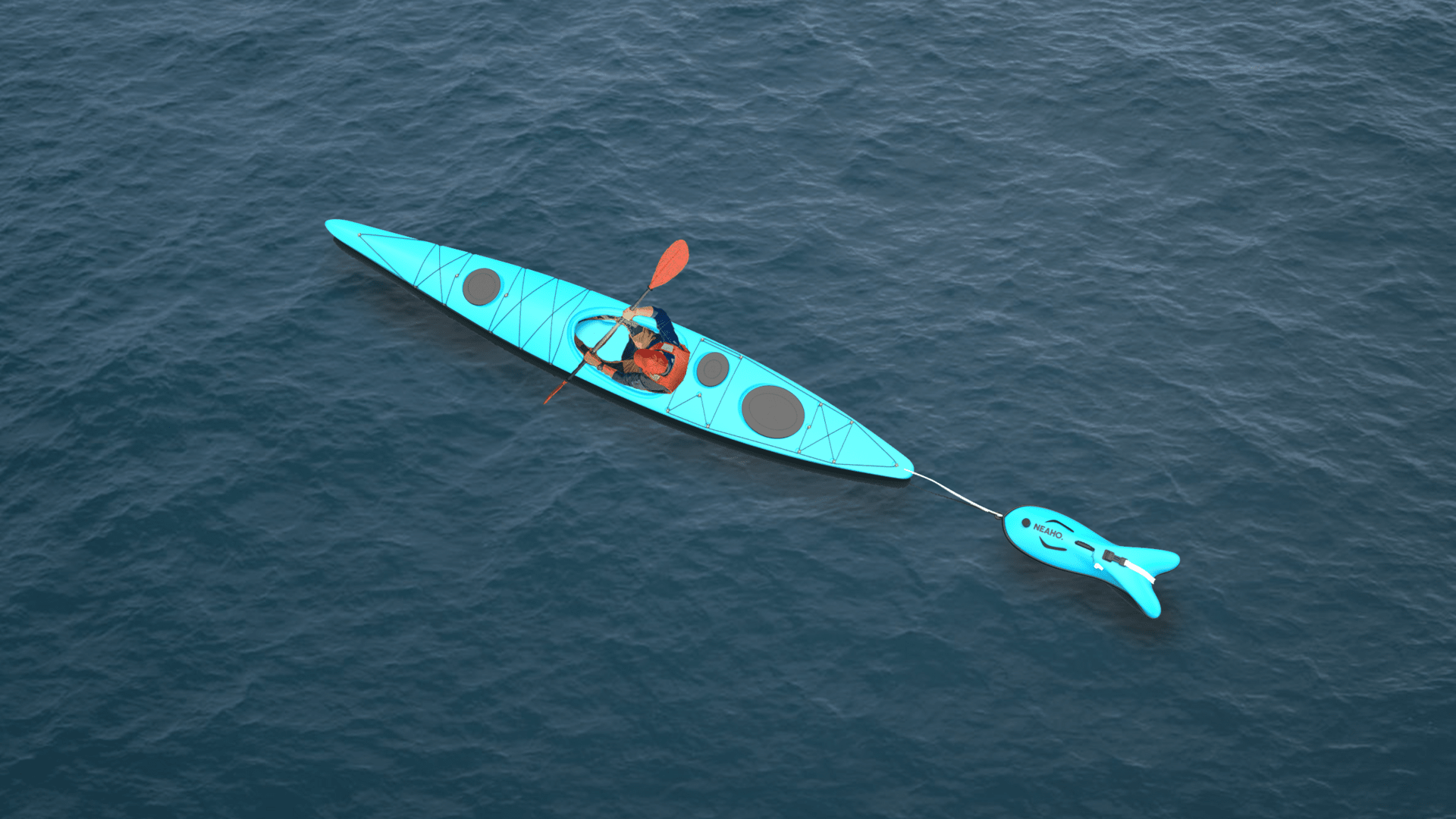
Neaho is an exciting and new radical approach for tackling water pollution which allows anyone to passively engage in collecting vital environmental data for waterways while doing their favourite water-based hobby. An intelligent tow float dry bag records and distributes open-source water quality data alerting communities as it is pulled along – bridging the gaps between concerned citizens, hobbyists, scientists and grassroots activism. By connecting many different groups of people through doing something they love, Ryan posits that environmental problems can be collectively tackled more inclusively – helping to form new diverse networks and drive meaningful change.
“A project with real relevance to today's issues. Water is an essential part of our lives and something that is of international importance. Ryan’s work was extremely creative and appropriate to concerns about the environment. His passion was obvious.”
The Helen Hamlyn Trust
The Snowdon Award for Disability
Winning project: Access City Builder by Jiawei Wu (MA/MSc Innovation Design Engineering, 2022)
Prize: £2,000

Access City Builder is an AR crowdsourcing game for mapping and building an accessible urban environment which allows citizens to scan and map the accessibility of public spaces together. Within the game, digital characters have the same ability as a wheelchair user – meaning players often need to help them pass specific barriers by building facilities. Through play, the system records the accessibility of public spaces and gathers location information about where new accessible facilities are needed.
“Access City Builder is an innovative, inclusive and positive design, with the potential to be a brilliant tool to challenge the inaccessibilities and barriers faced by wheelchair users on a daily basis across the city.”
The Snowdon Trust
Hamlyn Walker Challenge
Winning design: Michael Strantz (MA Design Products, 2022)

The Design Age Institute (DAI) was delighted to announce Michael Strantz (MA Design Products, 2022) as the winner of the Hamlyn Walker Challenge, with Michael receiving his award at the Helen Hamlyn Design Awards ceremony. This career-defining design competition was initiated by Lady Helen Hamlyn, Patron of DAI, who invited RCA students and recent graduates to rethink the walker and recreate it as a desirable and joyful product – an everyday mobility device that is useful, reliable, beautiful, and, above all, safe to use.
The winning concept by Michael proposes a frame that can meet the needs of multiple generations. Combining aspects of a rollator, electric scooter and a balancing board, Michael’s vision supports usability and function for different age groups to reduce the stigmas associated with traditional mobility devices, as well as increasing desirability through an elegant design aesthetic.
Alongside a £2,000 cash prize, Michael will develop his concept with a six month paid internship at PriestmanGoode starting in September 2022.
Alumni Award
This award is presented to a previous Research Associate of The Helen Hamlyn Centre for Design and for 2022 was awarded to Ross Atkin.

Ross was at the Centre between 2013 and 2015 where he worked on design projects in partnership with companies such as BT and Stannah, as well as charities the Royal London Society for Blind People and Scope.
Since then Ross has gone on to win the 2019 Emerging Design Medal at London Design Festival. He was an invited ‘inventor’ for the BBC TV programme The Big Life Fix, which explored new life-changing solutions to everyday problems.
He has also started his own company, Ross Atkin Associates, where he continues to work with older and disabled people, digital technology and public spaces.
Fixperts Award
The Fixperts learning programme has taken place in 45 universities and higher education institutes across 23 countries since 2013, with teams of students working on design projects that positively impact our daily lives.
Each year, the Helen Hamlyn Design Awards presents a Fixperts Award for the best of the Fixperts projects from this global network. For 2022, the Fixperts Award winning project was Assist Tripod for Iddo by Omri Steinmetz and Yoav Dagan from the Holon Institute of Technology in Israel. The runners up were One Hand Zip by Nitay Rachmirel Neta Lip from the Kibbutzim College of Education, Technology and the Arts, Israel and Tap Accessory for Phyl by Liam Hayes and Jack Kellet of the National College of Art and Design in Dublin.
Thank you to the sponsors and industry partners of the 2022 Helen Hamlyn Design Awards for their generous support: The Helen Hamlyn Trust, MindRheo, Northumbrian Water Ltd, The Snowdon Trust, Sure Deodorant, TATA Consultancy Services (TCS), Global Disability Innovation Hub (GDI Hub) and Heart n Soul at The Hub.
